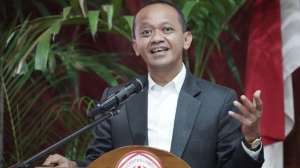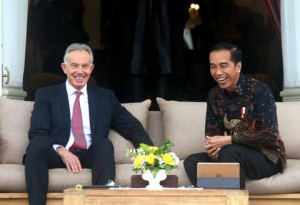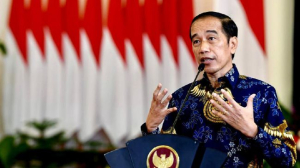RI holds off on additional fuel imports due to pending U.S. negotiations: Bahlil
Indonesia is delaying plans to escalate fuel imports until negotiations with the United States are concluded, Energy and Mineral Resources (ESDM) Minister Bahlil Lahadalia confirmed last week.
“Our negotiation team is still in discussion with the U.S. government,” Bahlil said on Friday, May 2, 2025 noting that recent talks with Indonesia’s Coordinating Ministry for the Economy had yet to produce final decisions. “So far, we haven’t escalated additional imports.”
Currently, 59 percent of Indonesia’s LPG is imported from the U.S., alongside approximately 6–7 percent of crude oil. Bahlil said these figures might increase once a joint decision is reached.
Regarding energy subsidies, Bahlil indicated that calculations for a unified data system on a proposed blended subsidy model are nearing completion. “It’s almost done,” he said. “We’re just waiting for the right timing.”
As previously reported by Indonesia Business Post, Minister of Energy and Mineral Resources (ESDM), Bahlil Lahadalia, has downplayed concerns over U.S. President Donald Trump’s tariff policy, emphasizing that it is merely a matter of trade politics and not something to be overly worried about.
Speaking to reporters, Bahlil said that while the tariff policy affects exports and imports, Indonesia's trade balance remains healthy, with a surplus of US$14.6 billion, according to Statistics Indonesia (BPS).
“To maintain this balance and avoid a 32 percent export tax, the government is preparing comprehensive measures, including increased purchases of certain commodities from the United States, such as LPG and oil,” he said on April 11, 2025.
When asked whether Indonesia would retaliate against American companies operating locally, Bahlil said, “No need to exaggerate. This is just trade politics − it’s normal. In HIPMI (Indonesian Young Entrepreneurs Assocition), we deal with things like this all the time.”
He also responded to comparisons with China’s retaliatory actions, noting that each country must act based on its domestic priorities.
“Every country will prioritize its own interests depending on its baseline. We respect that, but there's no need to consider this extraordinary. Stay calm,” he said.
Bahlil outlined that Indonesia's economic growth is driven primarily by domestic consumption (53 percent), followed by investment (30 percent), government spending (5–6 percent), and exports-imports (only 3–5 percent). With exports to the U.S. accounting for just 10 percent of total exports, he argued direct impact of the tariffs on the national economy would be limited. However, he emphasized the importance of responding to the issue carefully and wisely to maintain both domestic and international confidence.
Already have an account? Sign In
-
Start reading
Freemium
-
Monthly Subscription
20% OFF$29.75
$37.19/MonthCancel anytime
This offer is open to all new subscribers!
Subscribe now -
Yearly Subscription
33% OFF$228.13
$340.5/YearCancel anytime
This offer is open to all new subscribers!
Subscribe now







